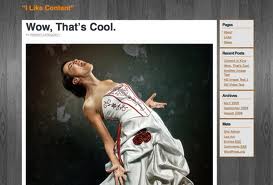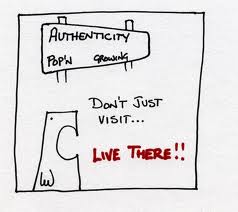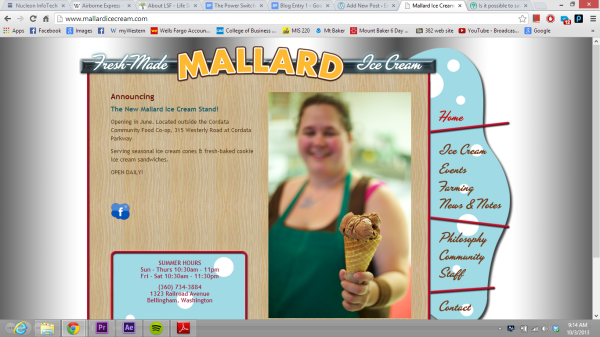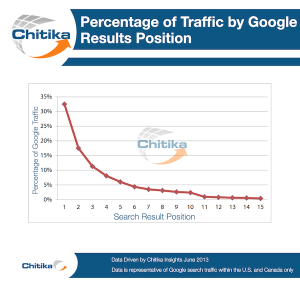Did you realize that not every post from your Facebook friends appears on your every updating newsfeed? Even though it makes sense that stories I interact with are highlighted on my news feed, I didn’t know that a majority of them didn’t even make it to the feed at all.
But now I know, and I have found that Facebook’s Edgerank is the reason why.
According to Facebook, Edgerank is an algorithm used by them to determine where and what posts appear on each individual user’s news feed so that they see the most relevant and wanted content.
There are three variables that make up the Edgerank post ranking algorithm: affinity, weight, and decay.
Affinity score is based on the relationship you have with the user who created the post. The more interconnected you are with that person, the more likely their story is to appear on your news feed.
Weight measures and ranks what type of engagement a post is getting. For example, shares and comments require more effort to post than a simple “like” and therefore are higher ranked interactions.
Decay factors in how long ago the post was posted and how much recent interaction it has had. A post will generally disappear from the newsfeed after a certain amount of time unless it has had recent engagement.
So if you want your posts to appear in your followers newsfeeds as often as possible, you need to consider it’s content and whether or not your followers will engage with it.
When it all comes down to it, Interactive, relevant content = quality content. Naturally, the way to build social authority on the internet is by sharing content. Naturally, posts that link to relevant, helpful content are of higher value than those that don’t. And while developing quality content is important, it is just as important what you do with that content that gives it a high Edgerank. To ensure your post are quality, check out These 7 Good practices from Social Backers to make your Edgerank soar!
1. QUALITY CONTENT – Since EdgeRank directly relates to your Engagement Rates, the more engaging your posts are, the more people will see it, and your affinity will continue to increase.
2. FOLLOW THE RULES – Breaking the rules has only short-term benefits. The more people report your Page, the more Facebook will penalize your Page which can result in a rapid drop in future reach and cost you the reputation of your brand.
3. POST FORMAT – Photos and videos have proven to engage most users, but a link to a great story or a clever status can do the job as well. Use Facebook savvy by not creating too long posts, take advantage of questions and call to actions, play with words and fill in blanks,…
4. POST FREQUENCY – More than 90% of Fans never come back to visit the Facebook Page again after Liking it. You want to post enough to maintain fan relationships, but not so much that they are overwhelmed.
5. POST TIMING – You need to find out when your audience generates the most activity. With Analytics PRO, you can easily track your most engaging days of the week and hours of the day to optimize your posting strategy based on previous results.
6. RESPONDING TO FANS – Do not forget that social media is a two-way channel. Avoid overwhelming them with advertisements, and create open communication. Every time you respond to a fan, not only are you investing in an actual brand-customer relation but you are also investing in the affinity of his/her Friends.
7. KEEP AN OPEN MIND! Measure, analyze, and optimize your strategy, analyze your competitors’, and try different techniques that work for others. Understand that Fans’ behavior will change just as frequently as the Facebook algorithm does.
These principles apply to businesses as well as individual users. However, businesses need to ensure that they are careful to represent themselves in as humanistic of a way as possible in order to be best connect with individuals. Social web sharing companies like Facebook and Google want the best experience possible for the core of their users, people. No one likes to be spammed. This why Facebook and Google focus on tailoring their algorithm towards showing users content they most care about, not what their followed businesses want them to care about. The key to giving people what they care about is authenticity. Companies will reach more people when their content is motivated by relevance and authenticity rather than profit.
This article shows the idea of NFO and NFM (News Feed Optimization and News Feed Marketing). The ideas and strategies involved with these two fields are very similar to SEO and SEM as with Google’s algorithm. Both within Facebook and through Google, providing a high level of high quality, authentic content will give you the best chance of it being seen by your followers.
However, just sharing good content based on Edgerank score will not guarantee that a follower sees your post. Because Facebook only shows the most relevant content for each individual user, a lot of stories and posts get lost in the flow of the newsfeed or are never shown at all. This article states that “the average news feed story from a user profile reaches just 12 percent of their friends.” With this narrow reach of content towards friends, and most users having hundreds of “liked” businesses and organizations, it it hard for either type of user to reach a significant portion of their followers with their posts. Of course, the more you pay Facebook, the more reach you can have. But surely, if you want to ensure that every follower of your page sees your post, you are going to have to pay them a lot. Especially if you are a big company, like one represented by Mark Cuban.
Mark has recently recently criticized Facebook on Twitter and his blog for their extremely large costs of advertising to a wide audience. He doesn’t agree with the large amount of money a company has to pay to reach a significant portion of an audience. An article from Wired posts Cuban as saying, “Why would we invest in extending our Facebook audience size if we have to pay to reach them?” Cuban told ReadWrite. “That’s crazy.”
Ryan Tate from Wired goes on to say, “…the huge number of users Cuban wants to reach aren’t on Tumblr or MySpace, where posts are unfiltered; they’re on Facebook, where Cuban and his staff have to work harder – or pay more – to get in people’s faces. In his comments on Twitter and to ReadWrite, it doesn’t seem to occur to Cuban that Facebook users like that the social network quietly filters some Mavericks posts from their feeds. It’s not like unfiltered Mavericks promotional copy is particularly hard to find. If Cuban wants to get mad at someone for keeping his content obscure, he should blame the people who write it or the people who refuse to enthusiastically consume it – not Facebook for accurately labeling it as advertorial, and pricing its distribution accordingly.”
Mark doesn’t realize that people actually don’t care as much about clicking on sponsored posts as he thinks (orly?). The reason why people don’t want your posts, Mark, and why you have to pay to have them seen by your followers, is because they are mostly intrusive and unwanted (even if helpful. Think the light yellow sponsored posts at the top of a Google search result). If a company’s post was wanted to be seen by a user, then it would be, because that user has positively interacted with that company’s content in the past. The more they do, the more those posts will organically appear on a user’s newsfeed. Thanks Facebook algorithm.
“In response to this criticism (from Mark Cuban), Facebook explained–both in a post by one of its engineers and in comments to TechCrunch and Ars Technica–that the newsfeed filtering was designed to eliminate spam and noise and that it was constantly being tweaked to show users things they were actually interested in, not just things that brands wanted them to see. The message seemed pretty obvious: Don’t be spammy with your posts, and lots of your users will still see them for free. And if you want to spam them anyway, you will have to pay for sponsored posts to do that.” Good content is hard to develop. Edgerank gives the little guy a chance to be seen. As long as you have good content, not even money from the big guys can hide away your posts from your followers.
But not only does Mark have a problem with the way content is shown on Facebook, he is also critical of the content itself that is generated. He describes FB in his blog as “…a time waster. That’s not to say we don’t engage, we do. We click, share and comment because it’s mindless and easy. But for some reason FB doesn’t seem to want to accept that it’s best purpose in life is as a huge time suck platform that we use to keep up with friends, interests and stuff. I think that they are over thinking what their network is all about.”
The problem Mark, is not that Facebook doesn’t want to accept it’s role as “time waste central” of the internet, but it is that you, and the data you are sourcing, are trying to put them there as such. People spend all sorts of types of time on all sorts of types of content on Facebook. Some items on a person’s news feed may indeed be garble. But most importantly, the collective of information a user sees comes from their community in which is important to them regardless. Their content comes from people they have physically connected with, similar peers with similar friends, local, like-minded students, parents, siblings, local businesses. As Mark Cuban also says, “by default you are not going to use your newsfeed as a primary source of information. It’s more like the township newspaper . You get the basic local stuff and updates , but it can’t be a comprehensive source.” Mark is right, Facebook is not a comprehensive news source. It is like a township newspaper, as he says.
Facebook is not meant to be a comprehensive source. It is not meant to be a go to stop to find out what great deal we can get from Coca Cola that day, or pressing issues of poverty in any given state or nation. We see those types of stories everywhere. From print ads, to radio, to tv and internet commercials. We get enough of that stuff from all types of different sources.
Facebook is about personal community and connection. So, if those large companies you represent, Mark, can’t afford to continue spamming every single user, every single day, who happened have liked one of those pages, boo hoo, get over it. Thanks again, Facebook Algorithm.
This is the beauty of Edgerank. No matter how a large a company is or many advertising dollars they have, they won’t be able to continue to reach followers who don’t like them. Mark also has a problem with this aspect of Edgerank because he believes that if a person really doesn’t want to see someone’s posts, they will simply hide them from their news feeds themselves. He says, “…Facebook is over complicating a simple issue. A user can govern his/her newsfeed far better by hitting unlike than an algorithm like EdgeRank ever can.”
Yes, in theory, a person can decide better than an algorithm the type of content they want to see. However this simple “blocking” of a user is not as simple as he puts it. First of all, we don’t want to take the large amount of time that it does to moderate every single person and business for good content. Secondly, there is a deeper, unseen relationship between a Facebook user and their friends as he may realize. In a users township of friends, you may not always necessarily like everyone in it, but you want and need them around because the content they share is an alternate, maybe sometimes extreme, but valuable, view of life that you think is important to consider once in a while in order to make effective and rational decisions in your own life. Some of what these people or businesses post is garble. But some is not. Some of it may be valuable to you. So naturally, you don’t want to see all of this person’s posts, but you want enough to be able to check in on them. And that is why Edgerank rocks. Person or business, only good content will be seen by those who want to see it most. And that is why the internet rocks and will continue to get better. Only good content will be seen by those who want to see it most
And that, my friends, is the point. Good content, that is relevant, personal, and authentic, will always win. And that’s awesome, because this is the type of content that is the best means for increasing the good of humanity, not profits. Sorry Mark.








